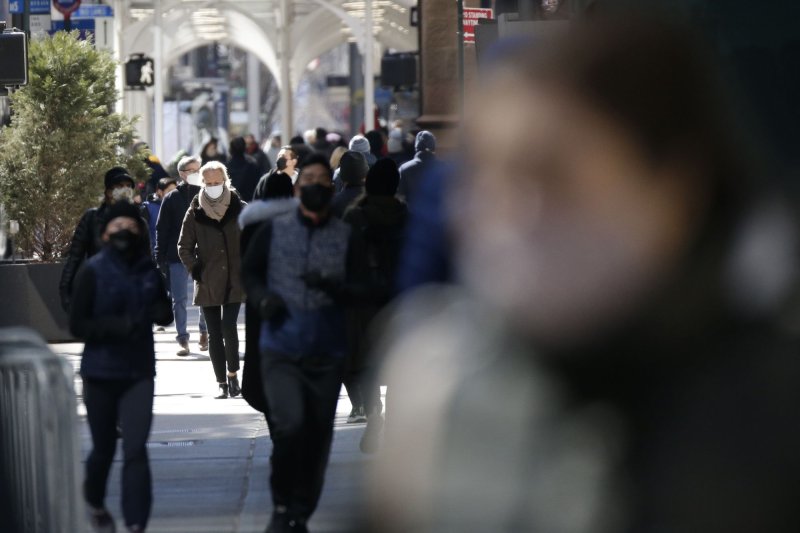
The National Intelligence Council's 2040 Global Trends report predicted that long-term effects of the COVID-19 pandemic could include increased political division and global inequality. File Photo by John Angelillo/UPI | License Photo
April 8 (UPI) -- The COVID-19 pandemic has caused potential long-term effects including deepening global inequality and driving political division, according to a U.S. intelligence report released Thursday.
The National Intelligence Council's Global Trends report, issued every four years, predicts a possible future in which people clash over resources, governments struggle to meet the needs of their citizens and people live in increasingly fragmented communities by 2040.
"The ongoing COVID-19 pandemic marks the most significant, singular global disruption since World War II, with health, economic, political and security implications that will ripple for years to come," said the council, a center in the Office of the Director of National Intelligence that releases forecasts based on U.S. spy agencies.
It noted that the pandemic is "slowing and possibly reversing some longstanding trends in human development," while the response to the pandemic has fueled partisanship and polarization as people "argue over the best way to respond and seek scapegoats to blame for spreading the virus and for slow responses."
As a result, the report predicts that people are likely to "gravitate to information silos of people who share similar views, reinforcing beliefs and understanding of the truth."
In addition to the pandemic, the report also warns that the physical effects from climate change, sea level rise and extreme weather events "will impact every country."
Technology is also expected to remain an integral role in daily life, with artificial intelligence emerging as a tool that will "benefit almost every aspect of life" accompanied with steep risks regarding civil liberties.
"Privacy and anonymity may effectively disappear by choice or government mandate, as all aspects of personal and professional lives are tracked by global networks," the report says. "Real-time, manufactured or synthetic media could further distort truth and reality, destabilizing societies at a scale and speed that dwarfs current disinformation challenges.
The report also envisions various scenarios including one where the United States rises to a new era of global leadership along with its European allies, fueled by the global distribution of a COVID-19 vaccine, while Russia and China struggle with internal issues as their brightest minds leave to other nations.
Another scenario presents the United States falling from its status as a global power amid a global environmental crisis and food shortages, while the European Union works with China and the United Nations to strengthen international aid and sustainability.
The report notes that the international system is currently "poorly set up to address the compounding global challenges facing populations" but says the pandemic may also provide the spark to correct these issues.
"COVID-19 could also lead to redirection of national budgets toward pandemic response and economic recovery, diverting funds from defense expenditures, foreign aid and infrastructure programs in some countries, at least in the near term," the report states.
No comments:
Post a Comment